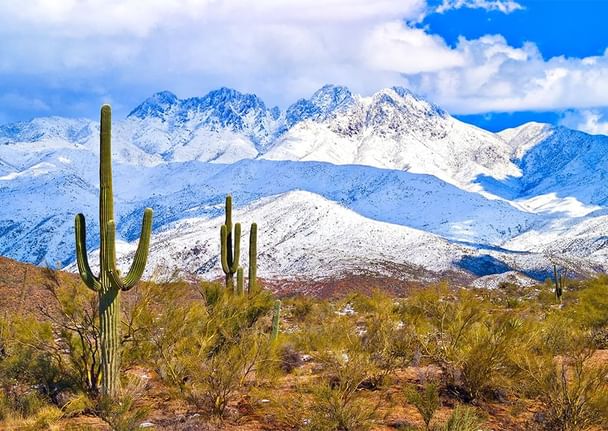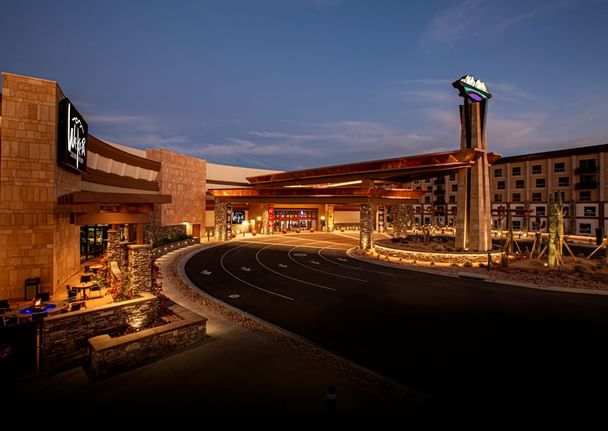Fort McDowell Yavapai Nation
"Abaja" - "The People"
The We-Ko-Pa Casino Resort is located on the grounds of the Fort McDowell Yavapai Nation. This native American tribe has lived in central Arizona’s Sonoran Desert and mountainous Mogollon rim area for thousands of years. Today, Yavapai nation owns 24,000 acres in Maricopa County, which pales in comparison to the 12 million acres the tribe once roamed as nomadic hunters and gatherers. A 40-square-mile reservation was established for the Yavapai in 1903 and 600 of the tribe's more than 900 members now call the reservation home. Yavapai nation strives to preserve its traditions and values, all while keeping up with its members' changing needs in our evolving society.
The Fort McDowell Yavapai, the “Abaja” – “the people” are one of three Yavapai tribes in Arizona. The Yavapai are among the Yuman-speaking peoples, which also include the Hualapai, Havasupai, Kumeyaay, Pai Pai, Cocopah and other Southwestern tribes. Our people have lived and worked in Central Arizona for thousands of years.

About Our History
Orme Dam
In the early 1970s, construction of the Orme Dam was proposed at the confluence of the Verde and Salt rivers, a short distance from the reservation’s southern border. The project would have flooded the reservation and forced the community from what remained of its ancestral homeland.
With limited financial resources, individuals from the community spearheaded an opposition movement that rallied the support of fellow tribal members. Other Indian tribes and non-Indian groups also opposed the dam.
By referendum in 1976, the community members voted 144 to 57 against selling their land to the federal government for the dam site. Then on November 12, 1981, after consulting with the Fort McDowell Tribal Council and the Governor’s Advisory Committee, Interior Secretary James Watt announced that Orme Dam would not be built. Each year a tribal fair and rodeo is held to commemorate the event.

The Fight For Gaming Rights
During the early 1990s several tribal casinos, including Fort McDowell, operated in Arizona. In accordance with the provisions of the federal 1988 Indian Gaming Regulatory Act, the tribes were waiting to sign gaming compacts with the state government. However, at the time the State Governor opposed Indian gaming and called upon the U.S. Attorney’s Office for support.
Unannounced raids by FBI agents on five Indian casinos were ordered. At first light on May 12, 1992, agents invaded the Fort McDowell Casino seizing the community’s 349 gaming machines, loading them into moving trucks. Community members witnessing the raid took immediate action. They called other community members, tribal leaders and the news media.
Using every available car, truck, and piece of heavy machinery, a blockade of the casino access road was organized. Violence ensued, including a three-week standoff between the tribe and government. The Arizona Governor was ultimately persuaded to sign a gaming compact with the tribe, thus paving the way for Indian gaming in Arizona. May 12 is now a tribal holiday.


